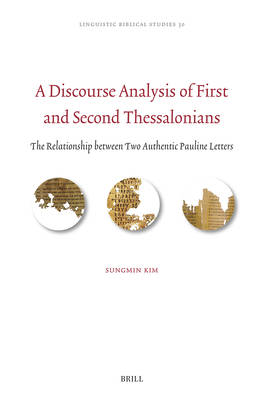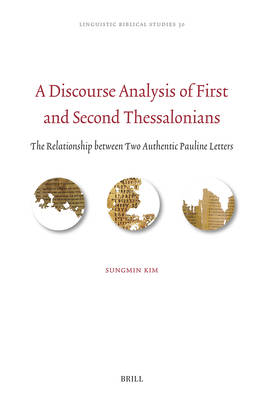
- Afhalen na 1 uur in een winkel met voorraad
- Gratis thuislevering in België vanaf € 30
- Ruim aanbod met 7 miljoen producten
- Afhalen na 1 uur in een winkel met voorraad
- Gratis thuislevering in België vanaf € 30
- Ruim aanbod met 7 miljoen producten
Zoeken
A Discourse Analysis of First and Second Thessalonians
The Relationship Between Two Authentic Pauline Letters
Sungmin Kim
€ 224,45
+ 448 punten
Omschrijving
Applying discourse analysis within the framework of Systemic Functional Linguistics (SFL), this study offers a fresh reexamination of the textual and contextual relationship between First and Second Thessalonians. Through register analysis--a key component of SFL discourse analysis--it uncovers a unified linguistic profile across both letters, characterized by pastoral consistency, relational coherence, and structural clarity. By challenging traditional assumptions of textual and situational divergence, it offers a linguistically grounded evaluation of the Pauline authorship debate concerning the Thessalonian correspondence. Combining methodological rigor with accessibility, the study invites readers in New Testament studies, biblical linguistics, and early Christian discourse to engage these foundational Pauline letters--textually, contextually, and with renewed insight.
Specificaties
Betrokkenen
- Auteur(s):
- Uitgeverij:
Inhoud
- Aantal bladzijden:
- 316
- Taal:
- Engels
- Reeks:
- Reeksnummer:
- nr. 30
Eigenschappen
- Productcode (EAN):
- 9789004745834
- Verschijningsdatum:
- 30/10/2025
- Uitvoering:
- Hardcover
- Formaat:
- Genaaid
- Afmetingen:
- 155 mm x 235 mm
- Gewicht:
- 621 g

Alleen bij Standaard Boekhandel
+ 448 punten op je klantenkaart van Standaard Boekhandel
Beoordelingen
We publiceren alleen reviews die voldoen aan de voorwaarden voor reviews. Bekijk onze voorwaarden voor reviews.








